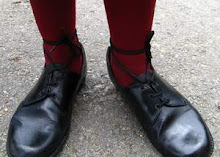Attention, libation lovers: Middle-aged women who indulge in just a few alcohol-containing drinks each day may have a higher risk of cancer than those who drink less often, according to a report released Tuesday in the Journal of the National Cancer Institute.

Middle-aged women who said they drank in moderation had a higher risk of certain cancers, a study showed.
Although moderate drinking -- considered one drink a day for women, two drinks a day for men -- is thought to lower the risk of heart attack and stroke versus both teetotaling and heavy drinking, the study highlights that alcohol has risks as well, and those risks increase in tandem with intake.
In the Million Women Study, researchers in the United Kingdom found that middle-aged women who said they drank in moderation had a higher risk of liver, rectal, and breast cancer in the seven years after they completed the study's questionnaire compared to women who said they drank less than two drinks per week. (The researchers didn't compare drinkers to nondrinkers since some people stop consuming alcohol for health reasons or due to past problems with alcohol.)
Drinking was also linked to a risk of cancers of the mouth, pharynx, esophagus, and larynx, but only in current smokers (not ex-smokers or never smokers.)
Compared to those who consumed only a drink or two a week, the cancer risk rose with each additional daily drink, and it was higher for those who consumed 15 or more drinks per week (or more than two drinks a day) than those who said they consumed between seven and 14 drinks per week (or between one and two drinks per day).
For example, breast cancer risk increased 12 percent and rectal cancer risk rose 10 percent with each daily drink, which would translate into 11 extra breast cancers per 1,000 women up to age 75 and one extra rectal cancer case per 1,000 women up to age 75. (The researchers estimate that 118 per 1,000 women in this age group develop the types of cancers included in the study.)
Overall, nearly 13 percent of the UK's cases of these types of cancer in women may be caused by alcohol, and the type -- beer, wine, or mixed drinks-- doesn't seem to matter, the researchers conclude. Health.com: Eat smarter in your 30s, 40s, 50s
Health Library
"The risk of cancer was similar in women who drank wine exclusively and in women who drank a mixture of alcoholic drinks," says study author Naomi Allen, D.Phil, from the Cancer Epidemiology Unit at the University of Oxford. "This suggests that alcohol, rather than other substances contained in specific alcoholic beverages, is the most important factor in determining cancer risk."
Breast cancer risk has long been known to be higher in drinkers, but beyond that, there's has been little research done on alcohol and cancer in women, says Allen. Although it's not clear how alcohol may increase cancer risk, Allen says, "there is evidence that moderate alcohol intake-- at the levels studied here-- increase circulating levels of sex hormones, which are known to be associated with an increased risk of breast cancer."
In the study, about 1.3 million women, with an average age of 55, who visited UK breast cancer screening clinics between 1996 to 2001 answered a variety of questions, including the type and frequency of alcohol consumption, smoking, body mass index, exercise, and use of oral contraceptives and hormone replacement therapy. Health.com: Is alcohol actually good for you?
Dr. Michael S. Lauer, director of the Division of Prevention and Population Sciences at the National Heart, Lung, and Blood Institute in Bethesda, Maryland, notes that the study does have some limitations.
"We have no way of knowing how much alcohol these women actually drank. We only know what they told us," says Lauer, who wrote an editorial accompanying the study. "This is an observational study, this is not an experiment." In addition, it's not clear how many of the women drank in moderation or were binge drinking. Health.com: Booze, drugs and bipolar disorder
Lauer notes that inherent limitations (the accuracy and pattern of alcohol consumption; the fact that the women were from breast cancer screening clinics) are factors in all studies of this type, but the large sample size of the Million Women group makes it unique. "I don't think one study is enough to make major policy changes right now," Lauer says, referring to recommendations on whether small amounts of alcohol are good or bad for health. "But this is a very well done study, and when policy is being made they are going to have to pay a lot of attention to this."
Susan M. Gapstur, PhD, vice president of epidemiology for the American Cancer Society, says women who are concerned about both heart health and their risk of cancer risk should discuss the potential pros and cons with a health care provider.
"Researchers remain concerned about the pattern of consumption," says Gapstur. "It is unclear, for example, whether someone who drinks several glasses of wine on one day during the week has the same risk as someone who drinks one glass of wine per day with a meal." Health.com: Getting to the bottom of your headaches
The American Cancer Society and the American Heart Association currently recommend that if you do decide to drink, you should do so in moderation, meaning one drink (12 oz. beer, 4 oz. of wine, 1.5 oz. of 80-proof spirits, or 1 oz. of 100-proof spirits) per day for women and two for men.
"Individuals that chose to drink should do so in moderation and because they like to, rather than expecting a health benefit," says Dr. Gregg C. Fonarow, codirector of the UCLA Preventative Cardiology Program. "The American Heart Association does not advocate consumption of alcohol of any type to reduce cardiovascular risk."
